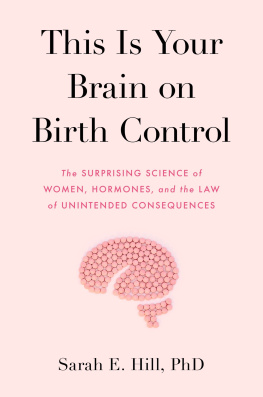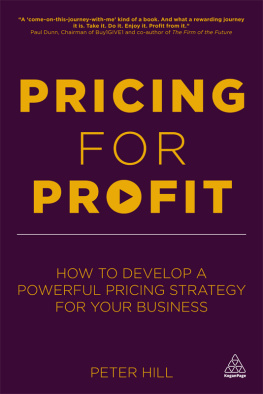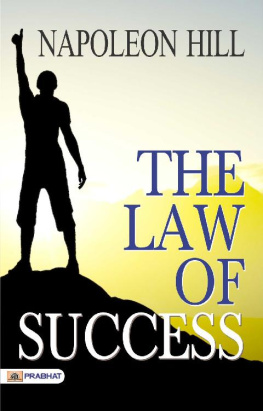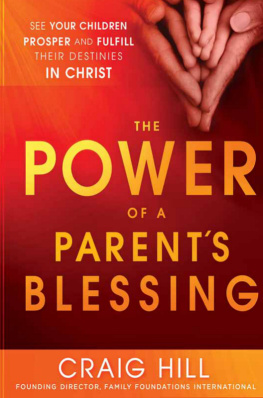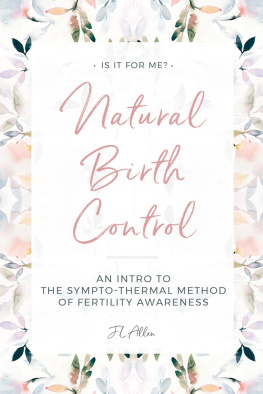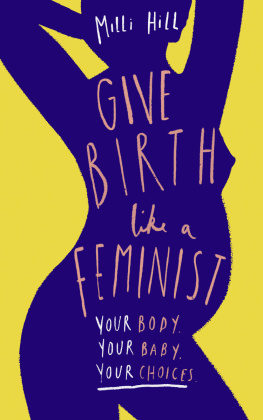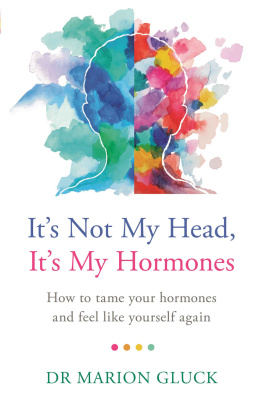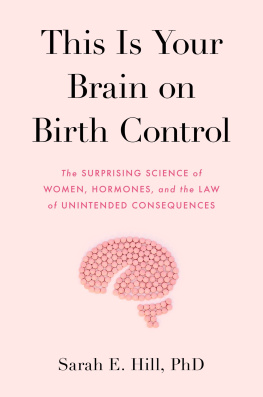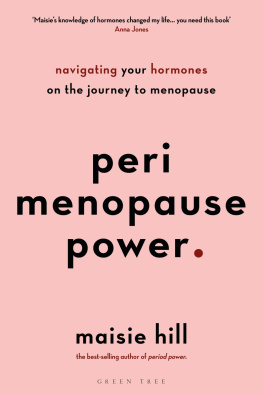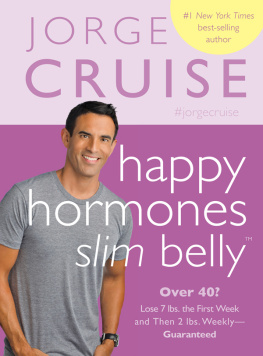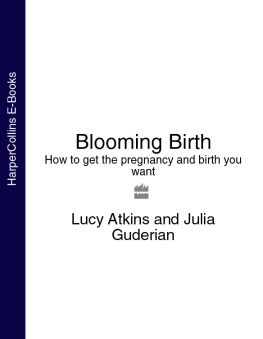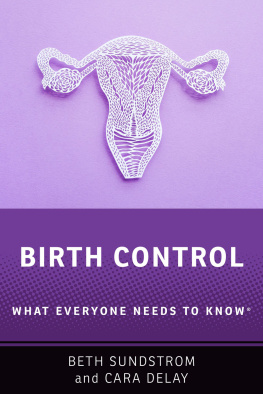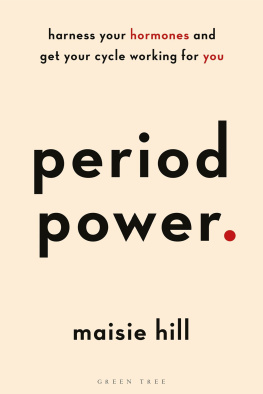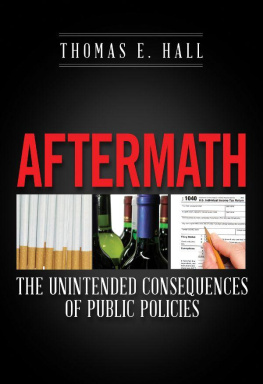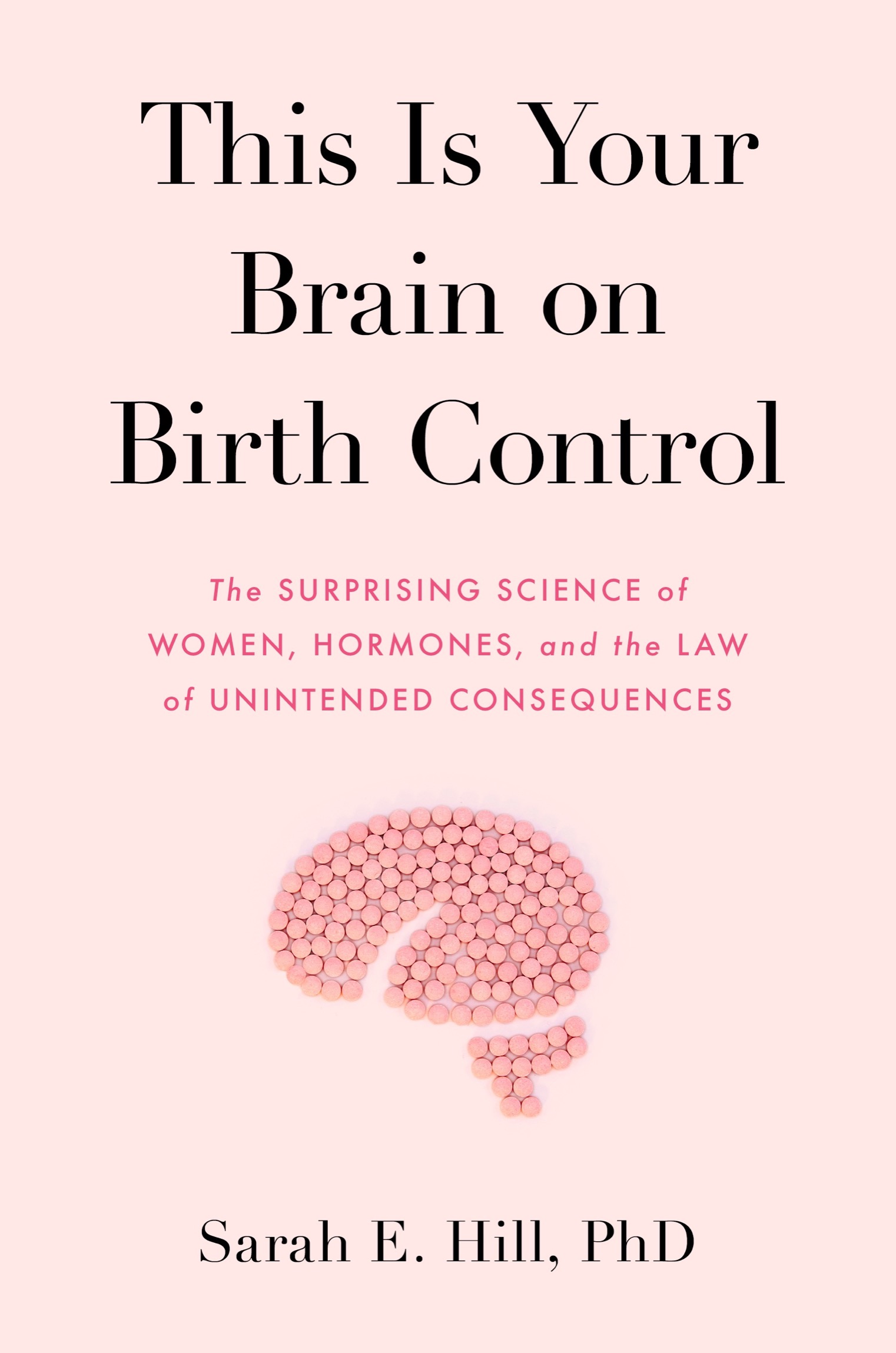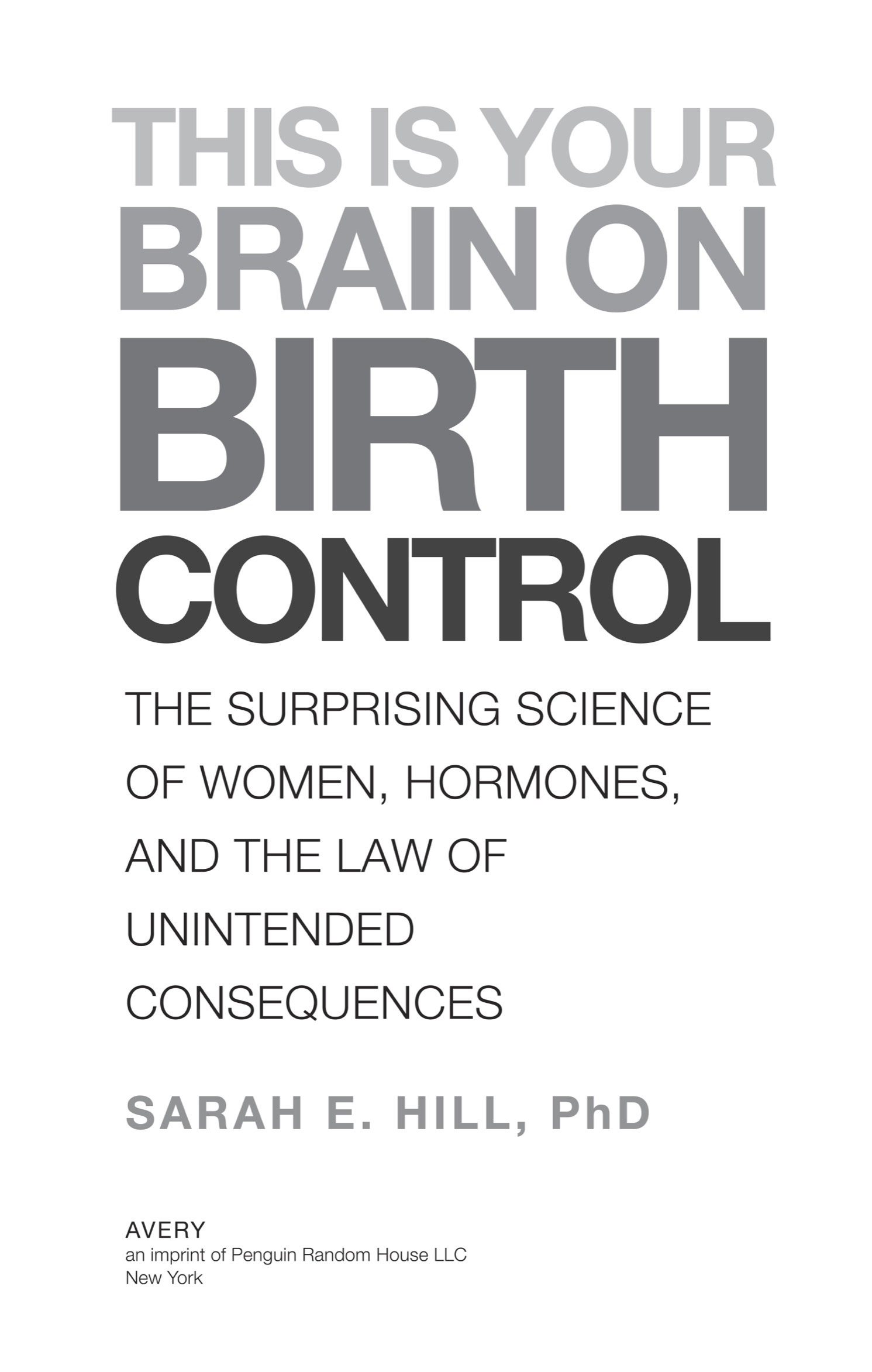
AN IMPRINT OF PENGUIN RANDOM HOUSE LLC
PEN GUINRANDOMHOUSE . COM

Copyright 2019 by Sarah E. Hill
Penguin supports copyright. Copyright fuels creativity, encourages diverse voices, promotes free speech, and creates a vibrant culture. Thank you for buying an authorized edition of this book and for complying with copyright laws by not reproducing, scanning, or distributing any part of it in any form without permission. You are supporting writers and allowing Penguin to continue to publish books for every reader.
Library of Congress Cataloging-in-Publication Data
Names: Hill, Sarah E., author.
Title: This is your brain on birth control : the surprising science of women, hormones, and the law of unintended consequences / Sarah E. Hill.
Identifiers: LCCN 2019015846 | ISBN 9780525536031 (hardback) | ISBN 9780525536048 (ebook)
Subjects: LCSH: Birth controlPsychological aspects. | WomenHealth & hygiene. | BISAC: HEALTH & FITNESS / Womens Health. | PSYCHOLOGY / Human Sexuality.
Classification: LCC HQ766 .H485 2019 | DDC 613.9/4dc23
LC record available at https://lccn.loc.gov/2019015846
p. cm.
International edition ISBN: 9780593087459
Neither the publisher nor the author is engaged in rendering professional advice or services to the individual reader. The ideas, procedures, and suggestions contained in this book are not intended as a substitute for consulting with your physician. All matters regarding your health require medical supervision. Neither the author nor the publisher shall be liable or responsible for any loss or damage allegedly arising from any information or suggestion in this book.
Version_2
FOR YOU
CONTENTS
INTRODUCTION
Let me start this off by saying that I dont have an agenda.
Well, maybe thats disingenuous. Nobody writes a book without an agenda. So I guess I probably have one, but it might not be the one you thought I had when you picked up a book about your brain and the birth control pill. This isnt the kind of book where I tell you a bunch of horrible, alarming facts about the pill and try to convince you that the pill has messed up your brain in at least 763 different ways, none of which are reversible. Its also not going to be the kind of book where I tell you that you shouldnt be on the pill or strongly hint that if you stay on it, youll pay for this ill-advised life choice by developing cancer, experiencing long-term memory loss, or growing a tail.
This isnt going to be one of those books.
I spent more than a decade of my life on the pill, and Im pretty sure that Im better off for having been on it. During that time, I was able to graduate summa cum laude from college (nerd!) and go on to get a PhD from one of the most competitive psychology programs in the country (double nerd!). Although not everyone would want to spend their late teens and early twenties subjecting themselves to this sort of educational masochism, I did. And the pill helped me do these things without having to worry about the possibility of getting benched because of a pregnancy I wasnt ready for. By freeing me from the reproductive consequences of sex, the pill played a huge role in helping me earn the highest degree in my field, build a productive research lab, and have my two children once I felt ready. I am hugely grateful for the opportunity to do all these things, and Im pretty sure that I would have had a much harder time with all of them if it hadnt been for the pill. Im not writing this book to try to talk you out of taking the same pill that granted me the opportunity to be in the position to write a book in the first place. This isnt that book.
But this isnt going to be the other kind of book you might expect it to be, either. Im not going to recount for you a one-sided love story about women and the pill riding off into the sunset and living happily ever after, which is the other agenda you might expect from a book like this. Although the pill has done a number of amazing things for women, as you will soon see, these wonderful things come at a cost. Some of the costs are pretty significant, too. And the thing thats troubling about them is that most women have no idea that theyre paying them.
I know I sure didnt.
You see, rather than being something that happens to you, your hormones are a key part of what makes you, you. You quite literally are your hormones. And when you change your hormoneswhich is what hormonal contraceptives doyou change the version of yourself that your brain creates. Because of this, the pills reach goes far beyond the small number of targeted effects we take it for. It affects everything. And theres a growing body of research in psychology and neuroscience that shows this to be true. You just havent been told about it until now. And once you learn everything Ive learned, I think youll agree that theres a good chance that well look back at our era one hundred years from now and be shocked that we were so cavalier with womens hormones.
Although the science looking at how the pill changes women is still in its infancy, we know enough to help you make informed decisions. First, youll need to understand a few things about how your brain works and the role your hormones play in making you who you are. Then youll need to understand what the research says about how all this changes when youre on the pill. The former has been the focus of my research for more than fifteen years as an evolutionary psychologist who studies women and health. The latter is something that I discovered only recently, after a series of three unrelated events led me to begin my scientific journey into the world of womens brains on the birth control pill. In many ways, this journey has turned out to be the story of my young-adult life.
It may be your story, too.
THE THREE UNRELATED EVENTS
Like most good adventures, my journey into the world of the brain on birth control began in an unremarkable way, without realization that something important was about to happen. It all started when I went off the pill, a decision I made in a non-grand fashion. I knew that I was done having children, so my husband and I opted for a more permanent solution to pregnancy prevention. Since he was man enough to take the lead on that one, I was able to ditch the pill without thinking too much of it.
Now, to give you a bit of background, at this point Id been on the pill pretty consistently for a little more than a decade. Id gone off it here and there, but never for very long. I went off it to get pregnant, and I stayed off it for a year after each pregnancy to breastfeed. However, I can hardly count these experiences as being a representative sample of a normal psychological state for myself, since they were either very brief (pre-pregnancy) or clouded by a disorienting cocktail of sleep deprivation and post-pregnancy hormones (breastfeeding). Nonetheless, I wasnt expecting my world to change in any noticeable way based on my decision to go off the pill. I thought its consequences wouldnt extend beyond my ability to release an egg every month.
This turned out to be a miscalculation.

